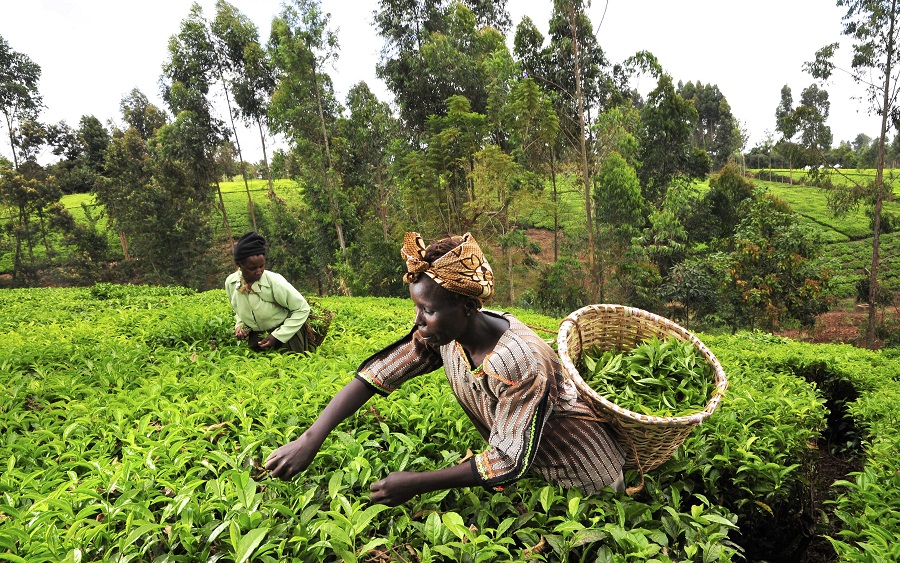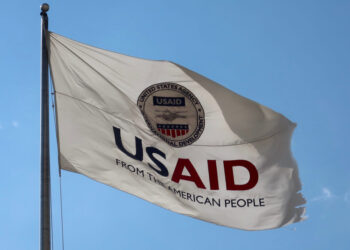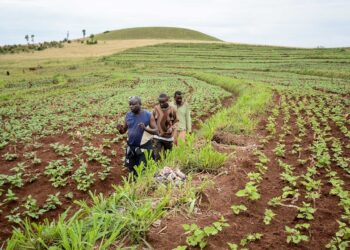In September 2021, Nairametrics reported that food processing startup, Tomato Jos, a private equity-backed, social enterprise agric company was awarded a N494 million grant by the USAID-funded West Africa Trade & Investment Hub (Trade Hub) to boost the productivity, income, and resilience of 4,000 maize and soybean smallholder farmers in northern Nigeria’s Kaduna State.
This came after a report in June citing Trade Hub’s investment in Thrive Agric, which saw the agritech startup grow on its commitment to strengthening agricultural value chains in the country, including for these three staple crops (rice, maize and soybean), with a Trade Hub backing of $1.75 million co-investment grant.
Also in June, Nairametrics reported a $1.4 million co-investment grant to OCP Africa Fertilizers Nigeria Limited (OCP Africa), a firm in the production of phosphate-based fertilizers, to install modern blending equipment within its fertilizer blending plant facility under construction in Kaduna.
Trade Hub’s Acting Chief of Party speaks
In an exclusive interview with Karl Littlejohn, Acting Chief of Party for the West Africa Trade & Investment Hub, he tells Nairametrics that 2021 has definitely had the highest number of investments, as nearly all of its 38 co-investment partnerships were signed this year.
The investment firm says it looks for investments in a broad range of fields including agriculture, financial services, healthcare, apparel, logistics, and even ecotourism and water or sanitation.
How many Nigerian companies have received investments from the Trade Hub this year?
“As of today, the Trade Hub has signed co-investment partnerships with fifteen Nigeria-based businesses, and many more are anticipated in the next three months,” Karl Littlejohn said.
“Our first co-investment in Nigeria — and within West Africa as a whole — was with WACOT Rice. We awarded the agribusiness 563 million Naira to directly support their Argungu Rice Outgrower Expansion Project, which is enabling them to partner with an additional 5,143 rice farmers in Kebbi State, boosting rice production, improving farmers’ livelihoods, and responding to food security concerns raised due to the pandemic,” he added.
He stated also that Trade-Hub’s most recently signed co-investment partner in Nigeria is Nalmaco, where they are co-investing 342 million Naira to assist them with increasing maize and rice production and securing the equipment needed to scale up production.
Which year generated the highest number of investments/hubs?
Littlejohn revealed that 2021 has definitely had the highest number of investments for Trade Hub, stating that nearly all of their 38 co-investment partnerships were signed this year.
“In 2019 and 2020, the majority of our efforts were spent in the rigorous process of vetting potential partners, and then working collaboratively with them during a co-creation process to refine their funded projects,” he said.
Which economic sector(s) does the Trade Hub invest in and why this/these specific sectors?
“The Trade Hub partners with West African-based businesses in a wide range of sectors, including agriculture, financial services, healthcare, apparel, logistics, and even ecotourism and water or sanitation.
“They have been identified as sectors where resilience and growth is critical to boosting economic development in West Africa, increasing trade between the United States and Africa and driving job creation,” LittleJohn responded.
What others have said about Trade Hub
The TradeHub’s resilience has also seen it become an attractive partner for investments in Nigeria’s Agriculture value chain, as Caleb Usoh, Country Manager/Deputy Managing Director for the Nigerian subsidiary of OCP Africa disclosed to Nairametrics. He said that the West Africa Trade and Investment Hub and OCP Africa are very aligned on the goal of enabling the African farmer to be productive in agriculture to create sustainable wealth.
“Trade Hub has a lot of experience working with smallholder farmers in Nigeria and Africa as a whole. OCP Africa will leverage the experiences of the Trade Hub for better project delivery across the agricultural value chain,” Usoh said.
He added that the grant from Trade Hub will facilitate the speedy completion of the NPK (fertilizer) blending plant in Kaduna where highly valuable fertilizer blends will be produced. The fertilizer products will soon be available to thousands of farmers on a yearly basis, throughout the lifecycle of the project.
What you should know
Nigeria’s agricultural sector grew by 1.3% (year-on-year) in real terms in the second quarter of 2021, a decrease compared to 1.58% recorded in the same period of 2020, and a decrease of -0.97% points from Q1 2021 which recorded a growth rate of 2.28%.
The sector accounted for 23.78% of overall GDP in real terms in Q2 2021, lower than the contribution in the second quarter of 2020 which stood at 24.65% but higher than the first quarter of 2021 which recorded 22.35%; and also contributed 22.13% to nominal GDP in the second quarter of 2021.











.gif)






